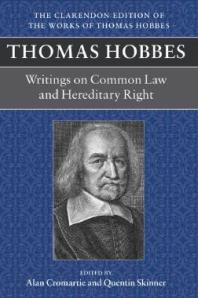 Thomas Hobbes, (born April 5, 1588, Westport, Wiltshire, England—died December 4, 1679, Hardwick Hall, Derbyshire), English philosopher, scientist, and historian, best known for his political philosophy, especially as articulated in his masterpiece Leviathan (1651). Hobbes viewed government primarily as a device for ensuring collective security. Political authority is justified by a hypothetical social contract among the many that vests in a sovereign person or entity the responsibility for the safety and well-being of all. In metaphysics, Hobbes defended materialism, the view that only material things are real. His scientific writings present all observed phenomena as the effects of matter in motion. Hobbes was not only a scientist in his own right but a great systematizer of the scientific findings of his contemporaries, including Galileo and Johannes Kepler. His enduring contribution is as a political philosopher who justified wide-ranging government powers on the basis of the self-interested consent of citizens.
Thomas Hobbes, (born April 5, 1588, Westport, Wiltshire, England—died December 4, 1679, Hardwick Hall, Derbyshire), English philosopher, scientist, and historian, best known for his political philosophy, especially as articulated in his masterpiece Leviathan (1651). Hobbes viewed government primarily as a device for ensuring collective security. Political authority is justified by a hypothetical social contract among the many that vests in a sovereign person or entity the responsibility for the safety and well-being of all. In metaphysics, Hobbes defended materialism, the view that only material things are real. His scientific writings present all observed phenomena as the effects of matter in motion. Hobbes was not only a scientist in his own right but a great systematizer of the scientific findings of his contemporaries, including Galileo and Johannes Kepler. His enduring contribution is as a political philosopher who justified wide-ranging government powers on the basis of the self-interested consent of citizens.
Read more here.
Image source:
John Michael Wright. (Unknown date). Thomas Hobbes by John Michael Wright [Oil on canvas]. Height: 75.6 cm (29.7 in); Width: 64.1 cm (25.2 in). Retrieved from https://commons.wikimedia.org/wiki/File:Thomas_Hobbes_by_John_Michael_Wright_(2).jpg
Biography source:
Thomas Hobbes. (2018, September 27). [Online encyclopaedia]. Retrieved October 31, 2018, from https://www.britannica.com/biography/Thomas-Hobbes
 Thomas Hobbes: Writings on Common Law and Hereditary Right : A dialogue between a philosopher and a student, of the common Laws of England. Questions relative to Hereditary Right by
Thomas Hobbes: Writings on Common Law and Hereditary Right : A dialogue between a philosopher and a student, of the common Laws of England. Questions relative to Hereditary Right by